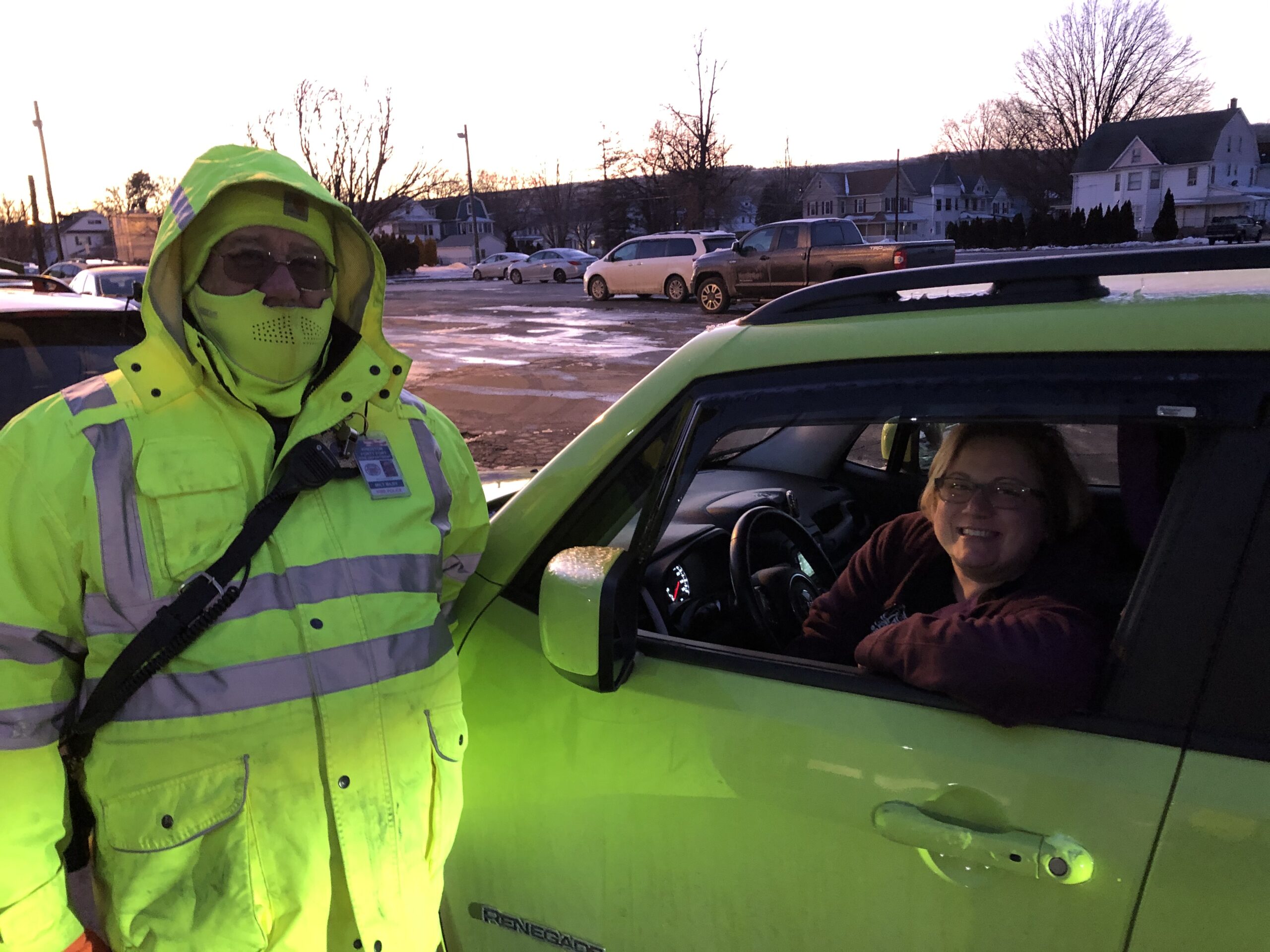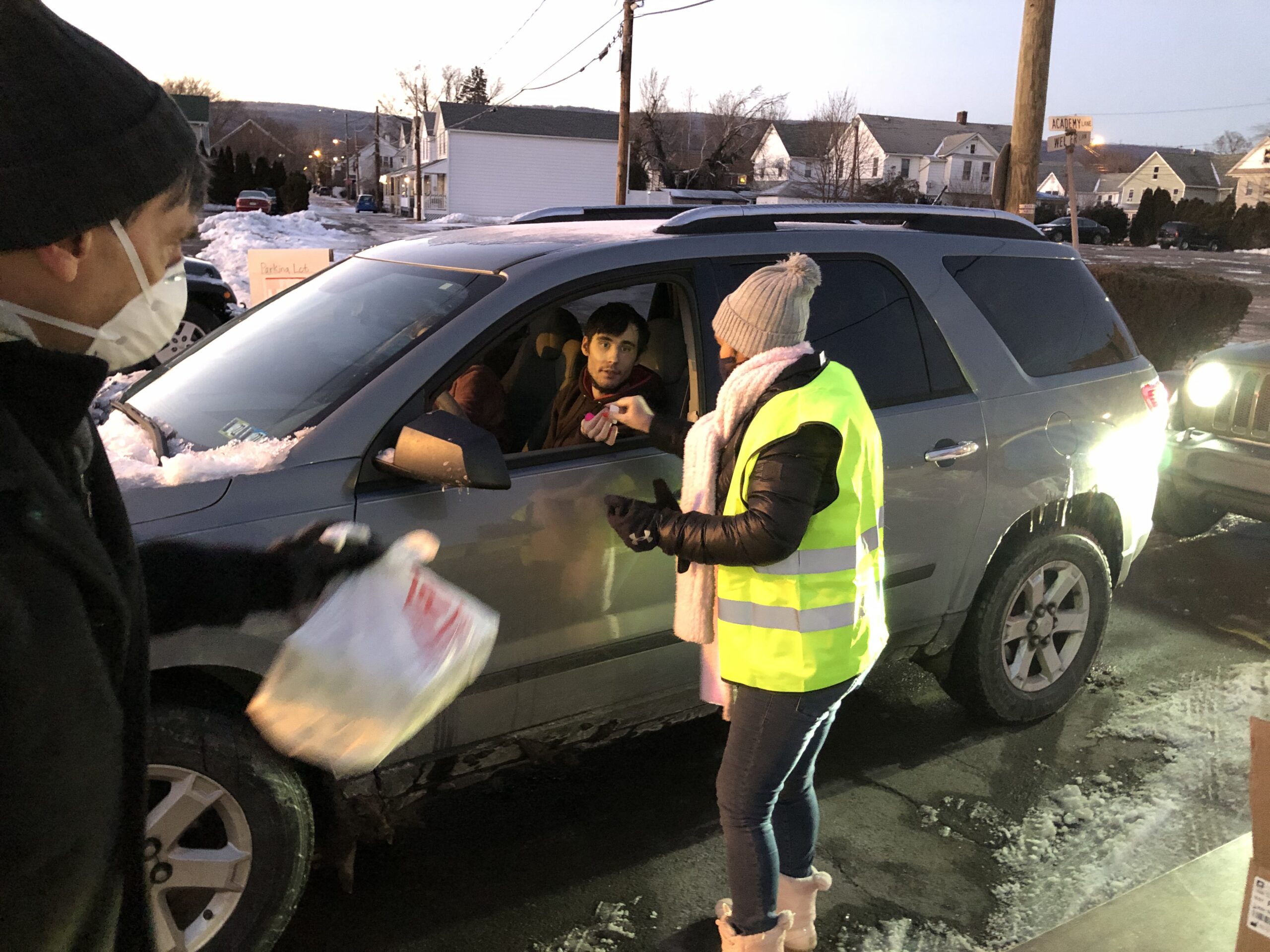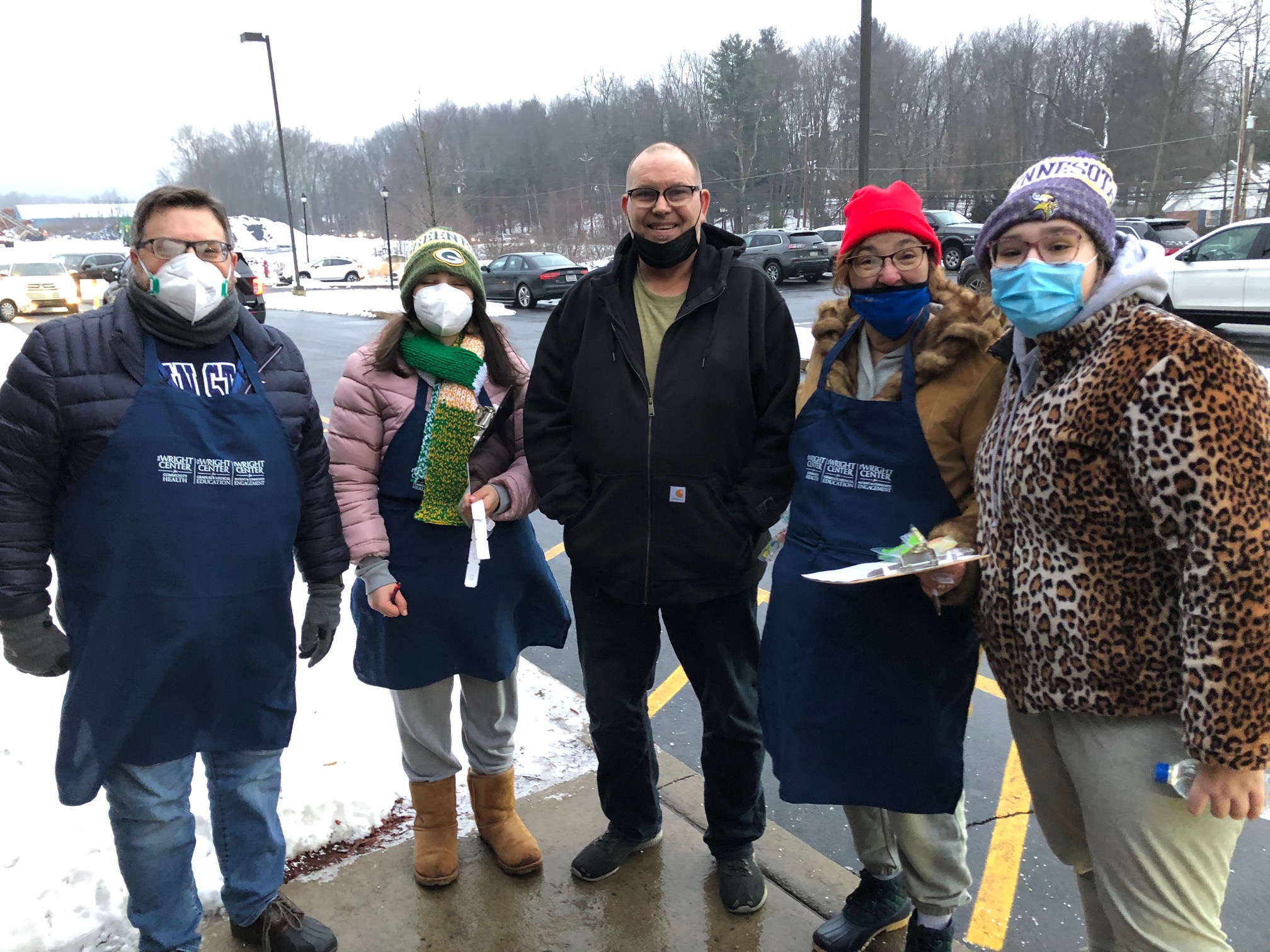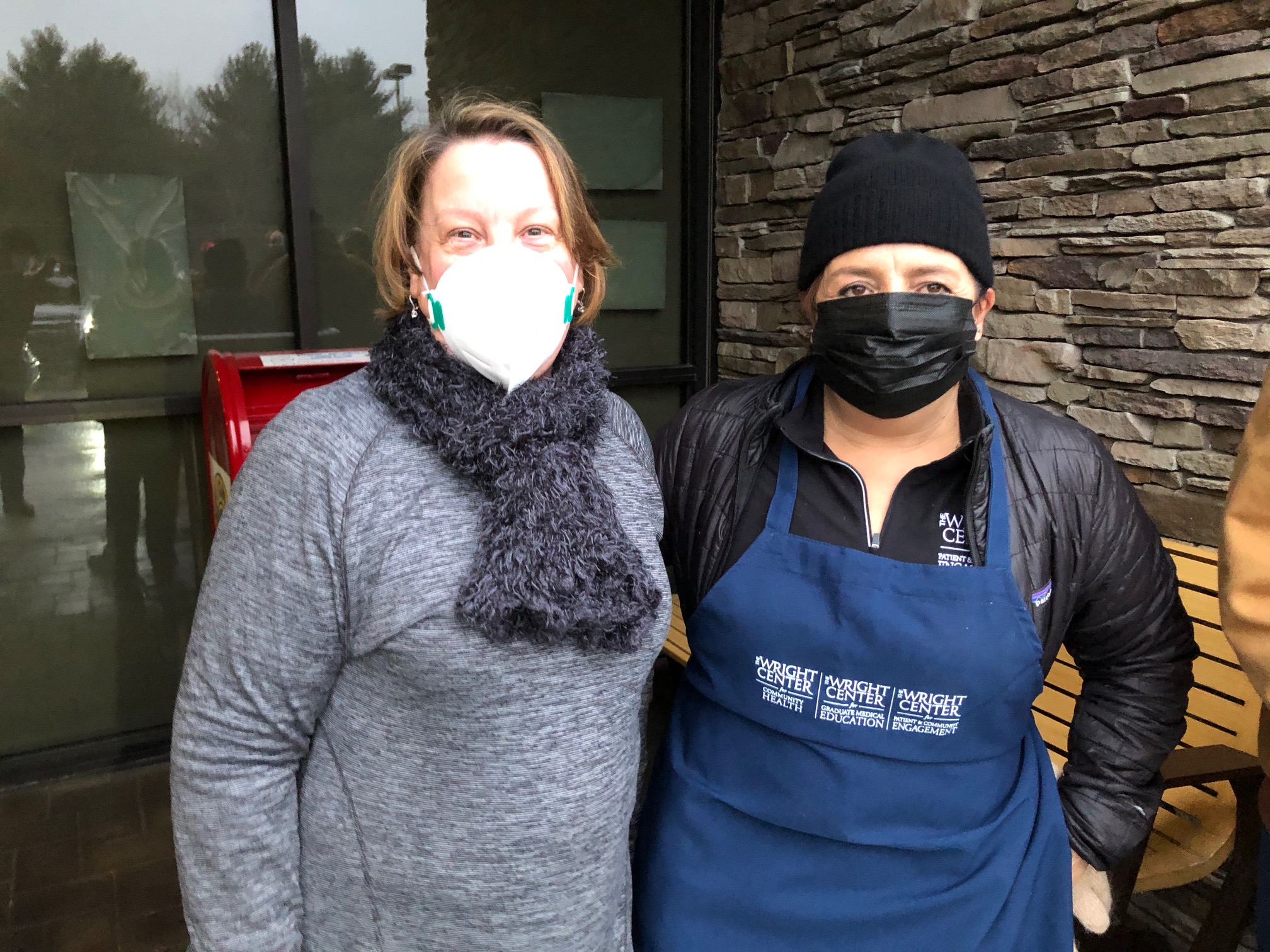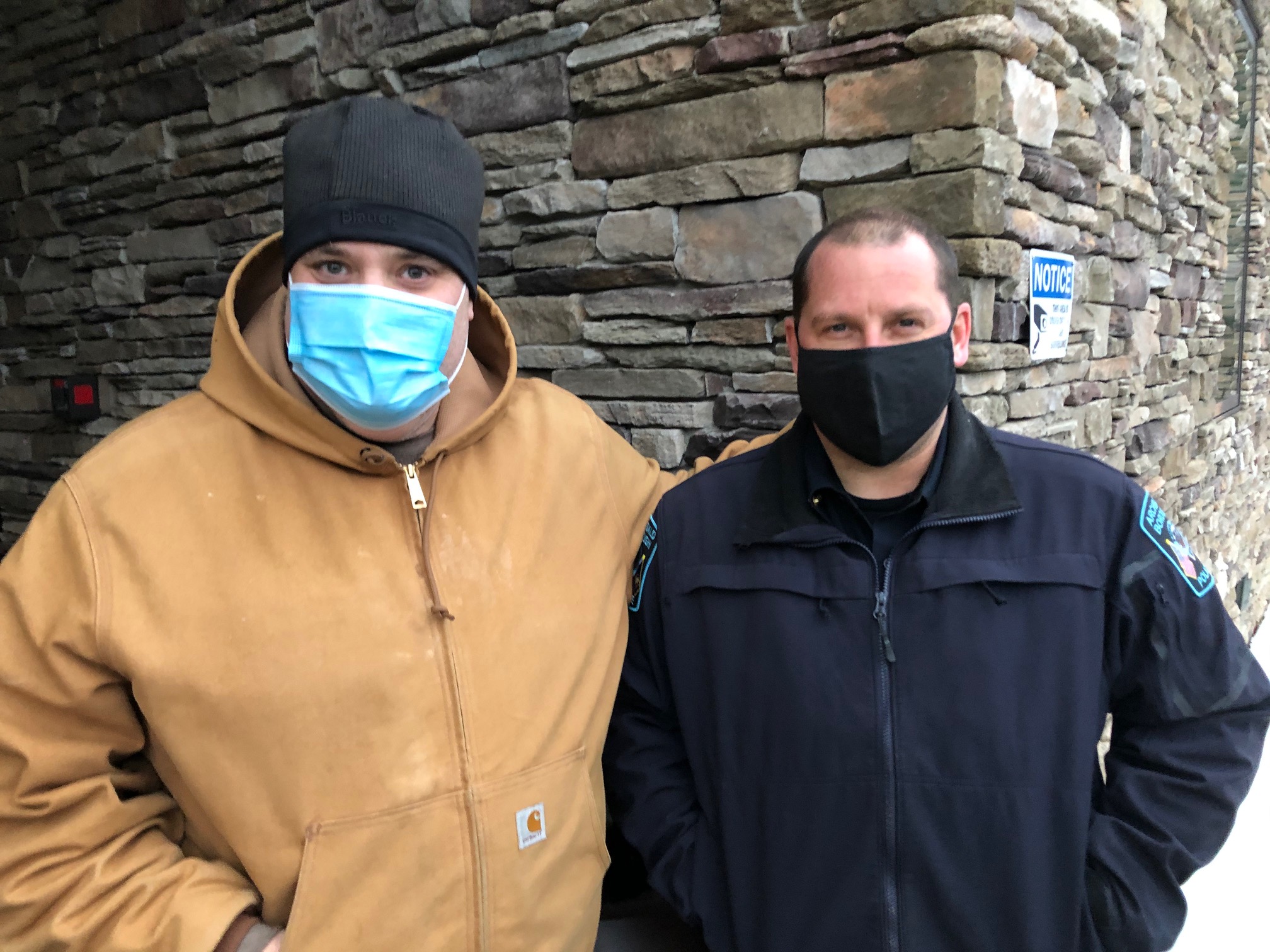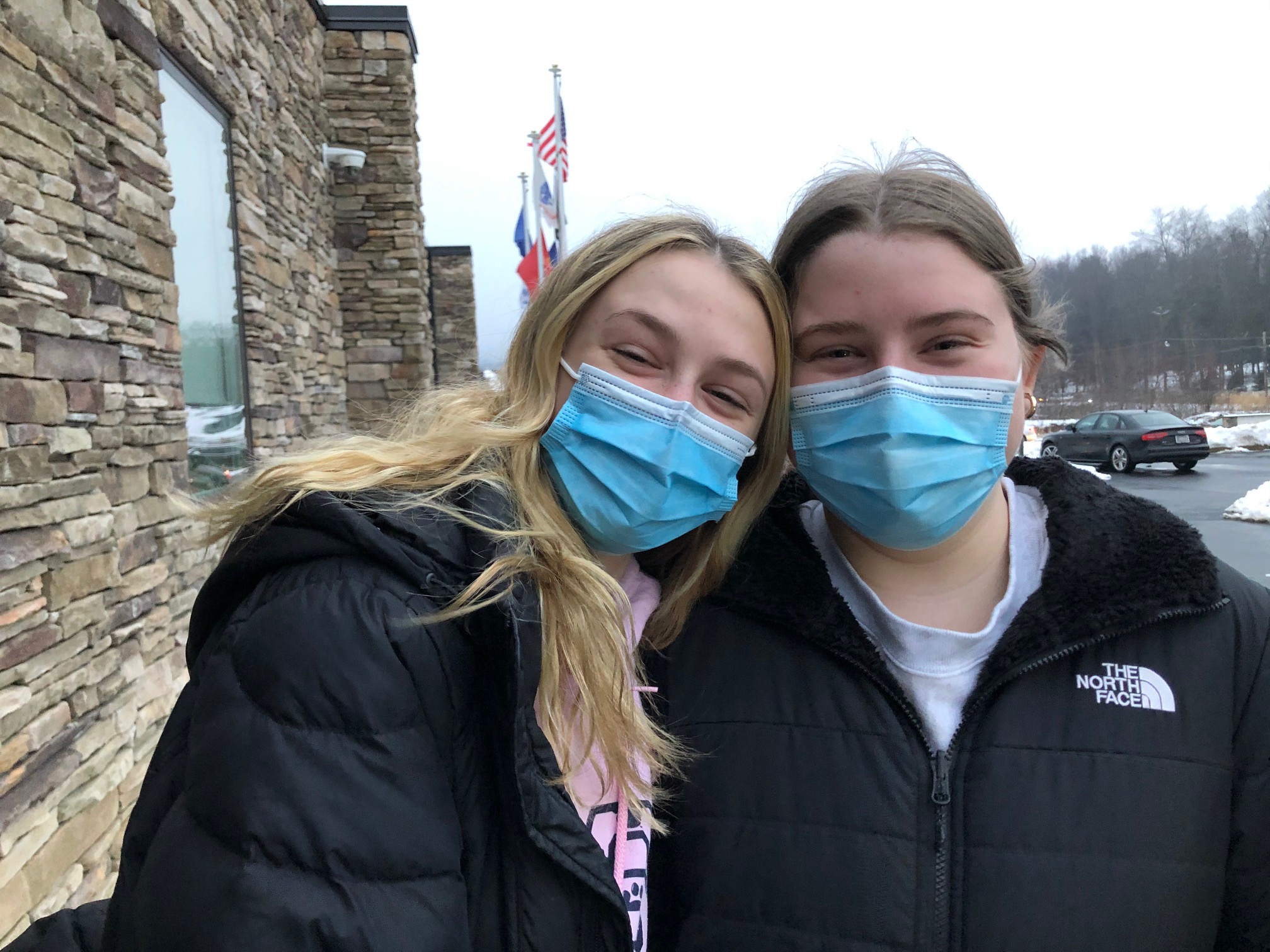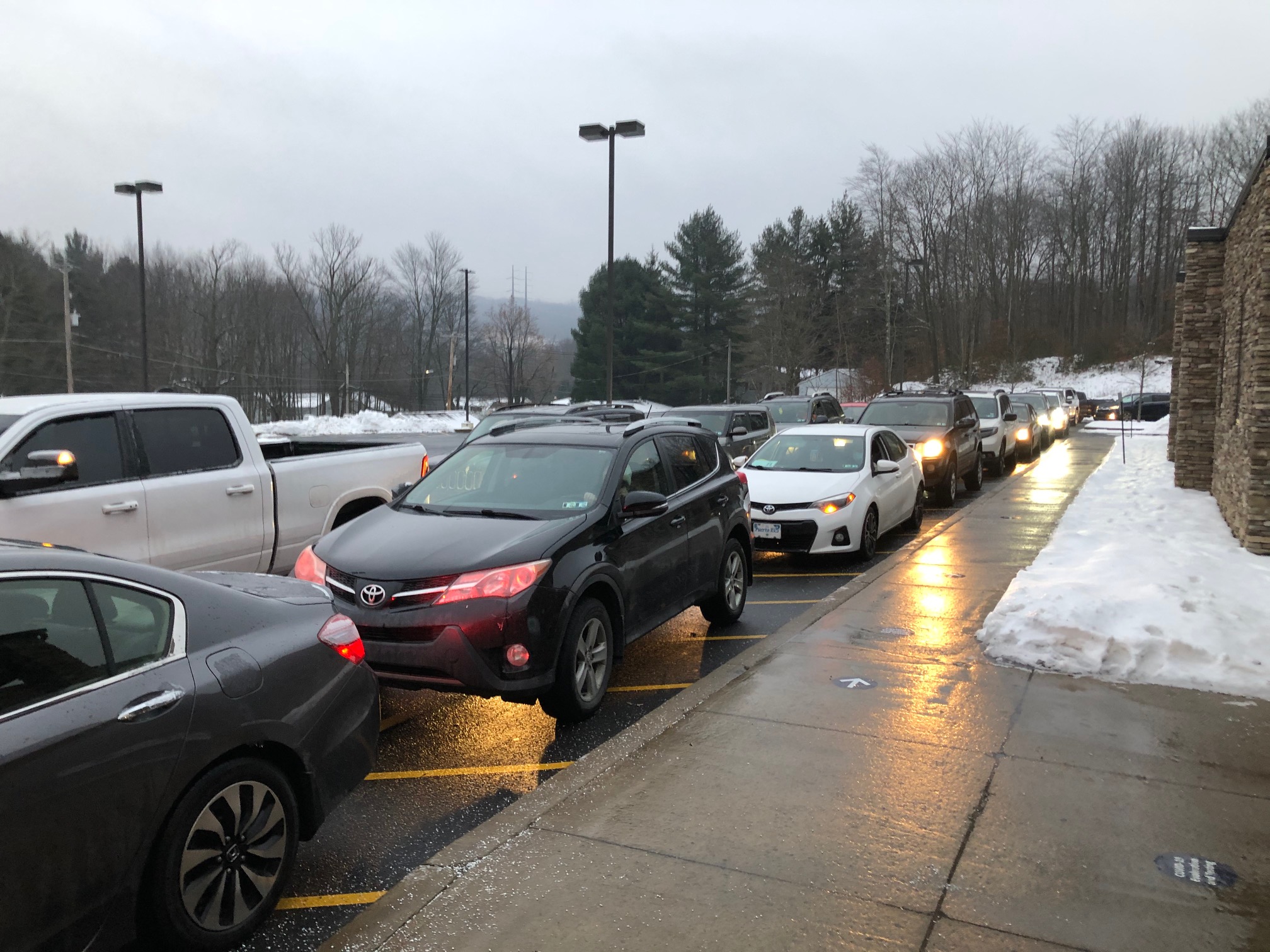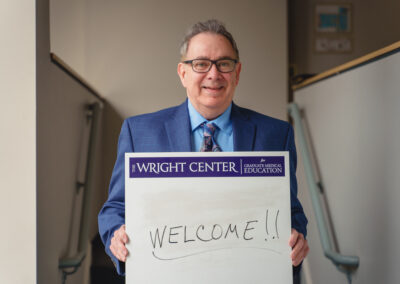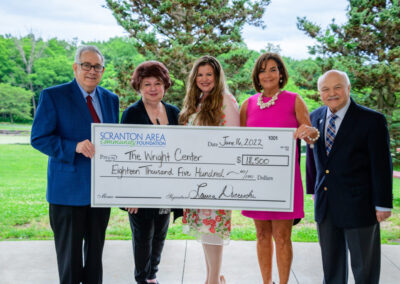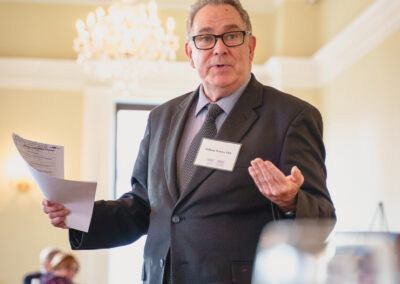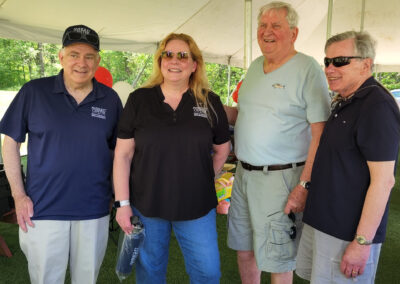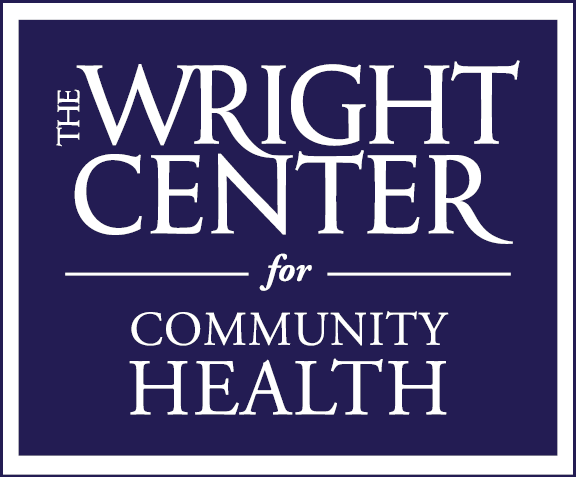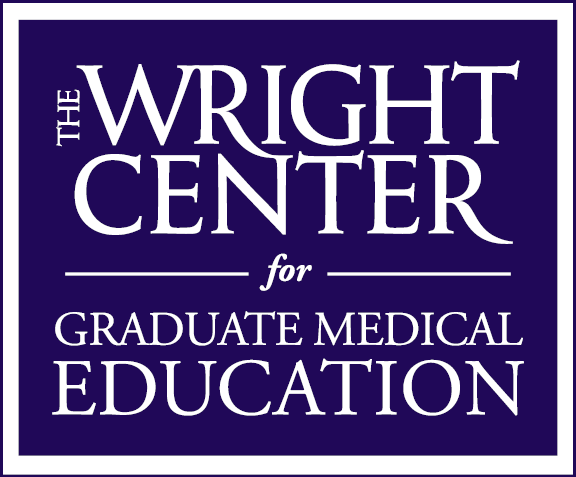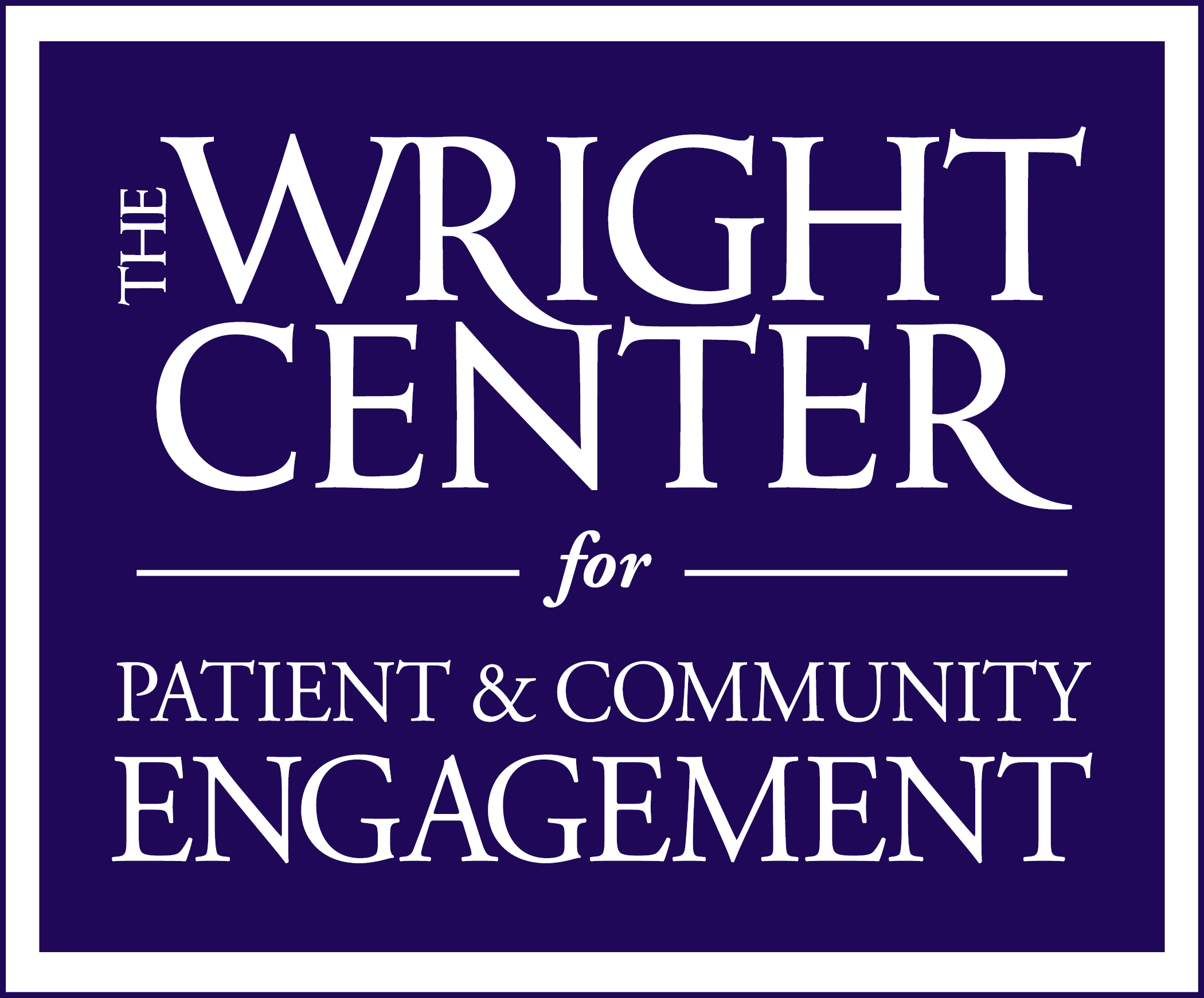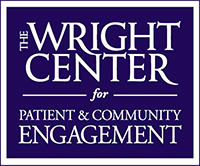
Patient & Community Engagement
Vested in Our Communities
The Wright Center for Patient & Community Engagement improves the health and welfare of communities through education, advocacy and patient-centered services and efforts directed toward the social and economic determinants of health. Board members, comprised of patients and area professionals, help the region’s less fortunate, including those experiencing homelessness, poverty, food insecurity, social isolation and other hardships.
Our Community Impact
The Wright Center for Patient & Community Engagement (PCE) complements the overall services of The Wright Centers for Community Health and Graduate Medical Education. It engages in the delivery, enhancement and transformation of primary and preventive health care services in the region. PCE focuses on local partnerships and programs that address negative social and economic determinants of health, such as poor access to education, employment, and food and housing insecurity that can affect an individual’s health and welfare. The following is an example of PCE’s impact on the people and communities we serve:
Winter coats & accessories
Backpacks to students
COVID-19 test kits given away
Lives saved with 90 pints of blood donated
N95 masks distributed
Municipalities provided test kits
Masks given to first responder departments
Community centers given masks/test kits

In Memory Of:
William M. Waters, Ph.D.
Board Member: 2015-2022
Co-Chair – The Wright Center for Patient & Community Engagement
Vice Chair – The Wright Center for Community Health
William M. Waters, Ph.D., of Lake Winola, Pa., a faithful and treasured patient of The Wright Center for Community Health for nearly 25 years, was a fervent and proud ambassador of The Wright Center’s mission to improve the health and welfare of the communities in Northeast Pennsylvania through inclusive and responsive health services and the sustainable renewal of an inspired and competent workforce that is privileged to serve.
A lifelong educator, he selflessly volunteered countless hours and engaged in the evolution of The Wright Center’s enterprise governance, most recently serving as vice chair of The Wright Center for Community Health’s Board of Directors and co-chair of The Wright Center for Patient & Community Engagement. Dr. Waters was a relentless champion for developing community-needs, responsive primary care services and primary care physician champions. In his role as co-chair and a founding board member of The Wright Center for Patient & Community Engagement, he passionately inspired governance and wider community engagement in operational initiatives to address the crippling social and economic determinant of health faced by those most underserved and marginalized in regional communities. Dr. Waters invested countless hours envisioning and ensuring The Wright Center’s efforts generated sustainable, systematic solutions with substantial impact.
Dr. Waters altruistically served in so many ways, such as his frequent volunteering for food pantry events, blood drives, and at the annual health fair and other community events. He actively engaged in The Wright Center’s public health advocacy activities with federal and state elected officials and administrators. Most notably, he played a crucial leadership role in the empowered inclusion of The Wright Center for Graduate Medical Education’s resident physicians as voting members serving on the Patient & Community Engagement Board of Directors.
His leadership in governance let to the development and implementation of “Table Talks,” a recurring platform for board members to improve competencies with various aspects of health center operations, as well as “PEP Talks,” an initiative to ensure opportunities for patients and families to make meaningful contributions to The Wright Center’s Sponsoring Institutional curriculum. He supported the evolution of the A.T. Still University School of Osteopathic Medicine-Affiliated Program Advisory Committee into a structured governance-driven process for curricular feedback. Dr. Waters also co-designed and implemented a board member mentoring program, co-designed implemented a robust board and committee annual self-assessment process, and supported The Wright Center’s commitment to the highest level of patient safety and quality during the global health pandemic.
Dr. Waters served New Jersey’s educational system for 31 years as a mathematics teacher, supervisor, assistant principal and district director of instruction. He was also the founding director of The Academy for Mathematics, Science, and Engineering at Morris Hills High School, a highly ranked county magnet school, in New Jersey.
Born in Scranton, son of the late William A. and Evelyn Hudak Waters, he was a summa cum laude graduate in mathematics of Holy Cross College, Worcester, Massachusetts, where he was also a student director of the marching band. He earned his M.A. and Ph.D. degrees from the University of Pennsylvania, Philadelphia, Pennsylvania, where he was an academic fellowship recipient.
Patient & Community Engagement Metrics
Scranton Area Foundation Grant
Grant
Donations Received
Strong Hold
Purse Lottery
Breakfast with Santa
Spring into Summer Raffle
NEPA Gives
Facebook Donations
Amazon Smile
Merch Shop
Giving Tuesday
Other
Patient & Community Engagement Goals
1
Enhance and Evolve Organizational Policies and Processes
The Board approved an amendment to the Board Oversight and Good Governance Policy, which was to increase the threshold for co-director emergency patient need from $100 to $200 in August of 2021.
Read More
The Policy has also been revised to include grant procedure and protocol. The financial management infrastructure was defined within the Board Oversight and Good Governance Policy and PCE now has a finance committee that receives quarterly updates on its financial status of PCE. Deb Sherman also attends weekly PCE Level 10 meetings to update the staff on the status of the budget and incoming funds. The PCE Governance Fiduciary Work Plan has been created and is monitored by the Governance Officer and Governance and Nominating Committee. Gerri continuously works with HR in regards to upcoming Community Services opportunities to be shared with Staff and Residents.
2
Identify Financial Resource Opportunities to support the PCE Strategic Plan
Read More
PCE ongoing fundraising initiatives: TWC Merch Store, percentage of sales go directly to PCE; Amazon Smiles, a percentage of sales through Amazon Smiles goes directly to PCE; and PCE created an option on Facebook for people to choose PCE as a charity they would like to collect donations for. The Board explored the feasibility of an endowment or contribution strategy, however, these are ongoing goals for PCE. PCE recently applied for the Community Health Worker’s Patient Assistance Program through the Scranton Area Community Foundation and was awarded the grant in the amount of $18,500.
3
Optimize the Role of Patient and Community Engagement Through Data-Driven Needs-Responsive Resources and Programming
Read More
PCE developed the workflow for the staff directors to report to the board on SDOH screening results, the EHR representative (Paul) reports on all of the data being collected, and the lead CHW (Amanda) is reporting out on needs being met and what assistance has been provided, and the co-director (Gerri) is reporting out on all activities within the community that addresses SDOH, such as food drives, wracks of warmth, senior center activities to reduce isolation, etc. The EHR Department created the SDOH iDashboard to be able to at a glance see where the need is most.
4
Develop and Implement Public Education on Prevention
The PCE Education Subcommittee is to: “Develop and Implement Public Education on Prevention; Lifestyle Medicine and Prevention COE for the Community.” The PCE Education Subcommittee has decided to initially focus educational efforts on addressing mental health among youth, and mental health stigma in general.
Read More
5
Contribute to Health Center Workforce Development
PCE welcomed 2 Resident (Chief and Leader) Liaisons as voting members on the board. PEP Talks were implemented as an education series for all board members and residents to attend.
Read More
Questions for management
"*" indicates required fields
Input for Executive Committees
"*" indicates required fields
Click on the organization below on whose board you serve to see metrics, goals, and accomplishments specific to that organization.
Once you've had the opportunity to do so, check out Dr. Thomas-Hemak's closing thoughts in the video at the bottom of the homepage.

